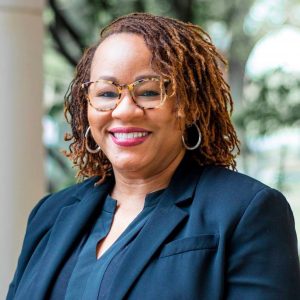Narrative Theology and Health
People of faith ground their beliefs about God, humanity, and the world around them in sacred stories. They are accustomed to hearing, telling, and being shaped—spiritually and ethically—by the communal stories they share. Transformative storytelling capitalizes on faith communities’ rich narrative dimensions in order to inspire growth and change. This is especially important when communities’ primary narratives about HIV/AIDS have become more stigma than life-sustaining sacred stories. Transformative storytelling methods are based on the idea that a participatory process of listening to and generating personal and collective communal stories catalyzes social action toward positive and healthy change (transformativestory.org). Transformative storytelling is communal and collaborative, and it incorporates diverse forms of expression, including art, film, music, and writing, making it uniquely accessible to people of all ages, backgrounds, religious beliefs, abilities, and perspectives.
“Applying a theological understanding to the role of congregations in transforming how communities approach HIV/AIDS is critical to our work. We have a unique opportunity to engage faith communities in prioritizing health and love beyond the stigmas that are death-dealing.”
Dr. Shonda Jones
Principal Investigator

The Wake Forest University School of Divinity is one of four Coordinating Centers at the heart of the The Gilead COMPASS Initiative®. While each Coordinating Center has its area of focus, they all work collaboratively to address the Southern HIV/AIDS epidemic. Signing on to COMPASS was a no–brainer, according to Jones. “When we joined Gilead in this initiative, we knew it was a perfect match because it complemented the work we were already doing in the divinity school.” Jones said.
Transforming the Story
Using Transformative Storytelling as a primary methodology, our aim is to collaborate with Christian and interfaith partners to deepen their understanding of and engagement with their communities’ health challenges and opportunities, and to equip faith communities to create sustainable and impactful strategies for addressing HIV and related health disparities. Congruent with the Wake Forest University School of Divinity mission, and University motto, Pro Humanitate, we equip faith leaders to be agents of justice, reconciliation, and compassion as we work toward ending the HIV epidemic.
Narrative Theology and Practice: A Faith and Health Framework
We affirm the inherent dignity and worth of all people, including peoples of African descent, women, young people, and LGBTQ+ individuals, as bearers of the divine image (Imago dei). We recognize the disproportionate impact of HIV and other diseases on these communities, and are committed to building the capacity of faith communities to address health disparities through a lens of liberation and social justice. Our theological commitments require that we dedicate ourselves to principles of inclusion, community empowerment, and intersectionality – taking seriously the complex relationships between race, gender, sexuality, socioeconomic status, and HIV status.
We are transforming the story of HIV as we gain knowledge about God and Creation, requiring a more expansive reimagination of Christian witness in the context of HIV/AIDS. This expansive notion calls us more fully to love God, love ourselves, and love others. We affirm the diversity of the divine which is manifest in and through the abundant diversity and worth of humanity and creation, including our physical bodies. Amid the joys and sufferings of our bodies, we offer respect and compassionate care as individuals, and in community. Further, we attest to the ongoing work of the Holy Spirit that emboldens humanity to be active participants in human flourishing and health, pro humanitate (for humanity).
Grounded in this theological framework and the principles it requires, we work to create a culture of truth-telling, healing, hope, and wholeness as liberative practices. Thus, our efforts seek to transform stigmatizing and harmful narratives into life-giving stories that help individuals, congregations, and communities to be active participants in healing the sick.
